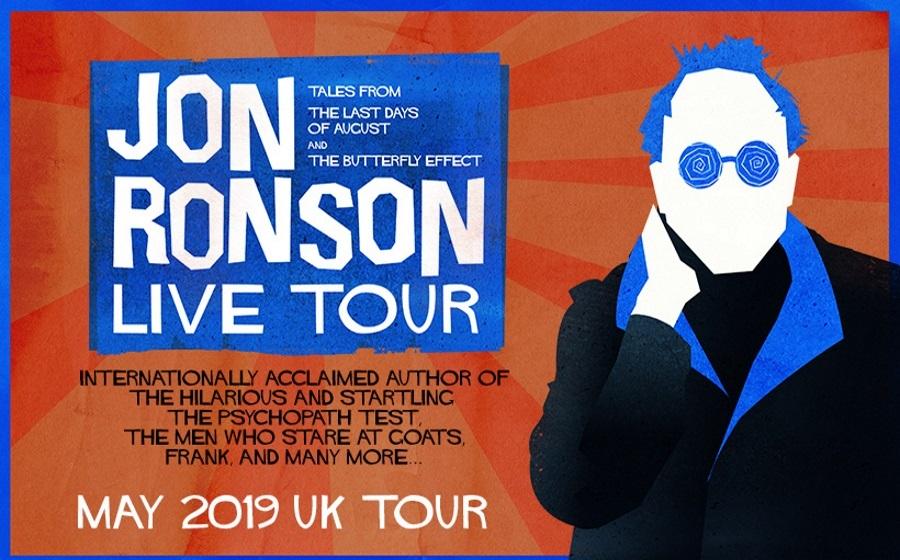On his latest UK tour, writer and journalist Jon Ronson presents stories from his recent podcasting projects: The Butterfly Effect (2017) and The Last Days of August (2019).
A self-effacing yet straight-talking Ronson introduces his audience to a man called Fabian Thylmman. Thylmman is the starting point of The Butterfly Effect, which explores the impact of one single monetising move on the entire porn industry and all its workers.
When Thylmman founded the company MindGeek, which owns the world’s biggest free porn sites including Youporn and Pornhub, the effect on the porn industry was rather catastrophic. Those making and performing in porn films suddenly had their livelihoods taken away, as there was no longer a market for paid-for porn. The result, rather bizarrely, is the emergence of bespoke porn. Jon recounts tales of clients paying porn stars to cover themselves in condiments or even stamp on the client’s own stamp collection, with clips to accompany them that are unusual and amusing in equal measure.
Ronson’s more recent podcasting venture follows on from his exploration into the dark realities of the porn industry. He tells the story of porn star August Ames, who took her own life in December 2017. The show sees Jon attempt to investigate the factors that may have had an influence on August’s mental health, thus potentially being the cause of her death, including events that took place on porn sets, altercations on social media, and also the effect of certain, potentially negative, individuals in her life.

Ronson’s ability to weave a story from a string of different events occurring at different times and in different places is uncanny. And he makes his stories personal too. Not only was he there asking the questions, probing uncertainties and challenging certain viewpoints (he provides audio clips of this), but he also interweaves his own personal experience into the narrative. Audiences learn how the experience was for him, along with his own hunches and worries, which takes this beyond classic investigative journalism and into the realms of memoir.
Not everything in life has concrete, determined answers. In fact, most things don’t. Sometimes we can never know what truly happened between certain individuals because first-person testimony is often unreliable or drenched in untruth. But Ronson’s skill for constructing a narrative, and building an argument whilst also considering other possibilities, makes us feel like we have a genuine, tangible connection to the story.
Jon Ronson has bravely entered a domain that most people don’t like to talk about, and this makes for a truly unpredictable and at times astonishing storytelling experience.
